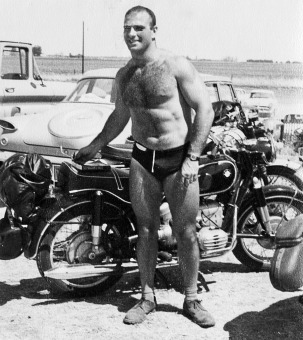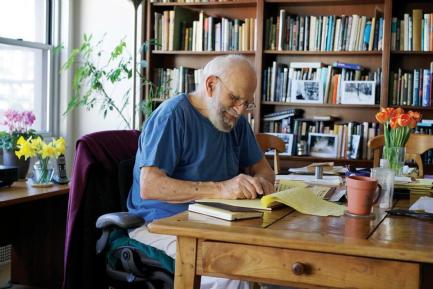
Oliver Sacks did not expect to live beyond 35, becoming a story teller most probably saved him.
As Vaillant and Gabbard have disarmingly described in the psychiatric literature, physicians are mostly of a distinct psychology. Uncertain of their own value stemming from childhood, characteristically the physician is doubtful, prone to guilt and with an exaggerated sense of responsibility. Under stress the physician tends to work harder, compulsively, and neglect pleasure and intimacy. Perfectionism, perhaps to win the approval of authority, is a shape of narcissism that is neither healthy nor pathological.
Pleasure in health-giving is short-lived as there are always more patients and death.The physician also tends to equate selfishness with weakness and selflessness with strength.
Substance abuse is not surprisingly common in physicians, unable to delay gratification endlessly, but covertly expressing needs without intimacy- and thereby further adding to underlying guilt and shame.
When one considers Sacks’ own story-giving, there is a notable absence of much of the above psychology. Without qualm, Sacks feels compelled to write of his experiences with no doubt as to their significance. His patients’ stories seem to be incorporated into his own, energising him. We have no sense of the suffering and despair in the experience of degenerative diseases. More so, patients seem to shine in Sacks’ presence. His stories are luminescent.
The years devoted to muscle-building, public weight-lifting as Dr Squat on Muscle Beach, and severe amphetamine addiction are apparently deplete of emotion or meaning beyond fantasy. There is no circumspection re impairment in medical judgement nor safety in long motor bike cruising that possibly attracted the comments of an early death .
In his few pursuits, Sacks seeks an idealised self-sufficiency – swims solo around islands, listens obsessively to Mozart for days….. self preoccupation and autonomy bury awareness of shame, and writing of his clinical environment as a reflection of his own attributes becomes his lifestyle for decades, avoiding any real relationship.
These writings are also exceptional in that Sacks deviates away from the sterile, academic constraint in the evidence-based requirement of his contemporaries. Sacks offers a public output that is energised, stimulant and with thought provoking cross references to cognitive psychology in its explorations of consciousness and its continuity.
Sacks speaks grandly of fortune in his life’s summations. He speaks of his esteemed role in the wards with hundreds of patients under his care. ( The average physician more tends to wonder as to his value when reflecting on career.) Of note, Sacks sounds to have out-lived his “analyst” therapist- with whom such long association would have posed inevitable exposure to unreconciled shame. This grief was avoided, and Sacks more so closes in general self- congratulation.
“Narcissus loves life, but loves it in himself because he has all of life inside him.” ( Juan Ramon Jimenez)
https://www.ted.com/talks/oliver_sacks_what_hallucination_reveals_about_our_minds?language=en
